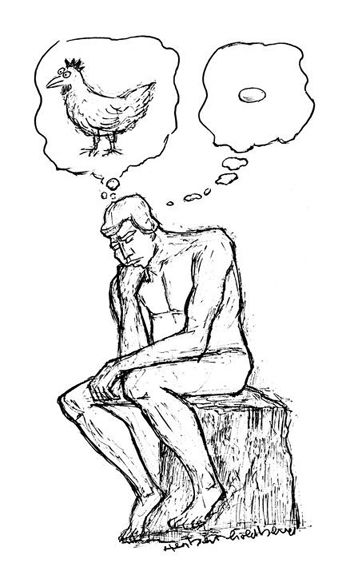An "Approximate" Truth
Jun 24, 2019 • 152 views
The knowledge of what you know and what you are made to believe is as different as knowing the plot yet failing to judge the meaning to it.
The path our mind is heading over to, is as complicated as it can get. Yet, the one thing it knows is that whatever it knows or whatever it is familiar with isn't enough. There is the great possibility for it to be false or inadequate. Thus, our knowledge to judge what is black and what is white on a printed page can only be concluded if we truly know the real idea of black and white together. Again, who decides the correct and signified way to judge this idea? The correct way to determine it, is by acquiring the study of knowledge. The theory of knowledge specially with regard to its methods, validity,and scope and the distinction between justified belief and opinion is called epistemology. In simple words, it is knowing what we know, how we know we know it and how to keep track of it without driving ourselves crazy.

The famous writer and political philosopher, John Locke writes in his essays about reaching the nature and extent of human knowledge, the putative heart of your inquiry. He excludes knowledge claims in which there is no evident connection or exclusion between the ideas of which the claim is composed. In other words, it is possible to know that the three angles of a triangle equal two right angles, only if one is familiar with the Euclidean proof. But it is not possible to know that the next glass of water one drinks will quench one's thirst, even though psychologically one has every expectation, through the association of ideas, that it will. These are cases of mere probability, not knowledge.Even the Tabula Rasa, that discusses the theory of blank slates, claims that individuals are born without built-in mental content and therefore all knowledge comes from experience. Having said that, these beliefs prove to be unimportant since they are unable to give a stand to humans to defend their knowledge, on a particular subject, as true.
Epistemology, the study of knowledge, is also related to broader heading, Philosophy. Plato, one of the most famous practitioner of philosophy and epistemology, defines in his "Republic", the ideal government as one that is set up and run by a philosopher king. This person having a competely just soul, would be able to organise and run a government that is also completely just. Plato clearly imagines and writes about pure justice and man who is purely just. This statement however, doesn't stand to be true as these aren't particular claims defining a true government or a perfectly just person but mere sentences of imagination and thought. I personally do not believe that there is a perfectly just person but a character to suit the purpose of the plot. A very clear example to support this claim is the war between the north and the south, during slavery in the United States. The southern white slave owners were raised to believe that blacks were inferior, and they believed it as it was hard for them to imagine life any other way from the beginning(Plato's epistemology). This "chain"of belief, however, couldn't stand as strong as those of the other southerners as the Yankees from the north weren't totally immersed in slave culture, which made it easy them to look beyond the shadows to the real truth. This conflict between the epistemological methods of the north and the south arguably caused the Civil War ,which if wouldn't have been opposed, would've continued to treat blacks as inferiors.
Thus, not every claim or belief is inclusive under the Study of True Knowledge. It needs to be selective and most importanly proven.
"New opinions are always suspected, and usually opposed, without any other reason but because they are not common."
